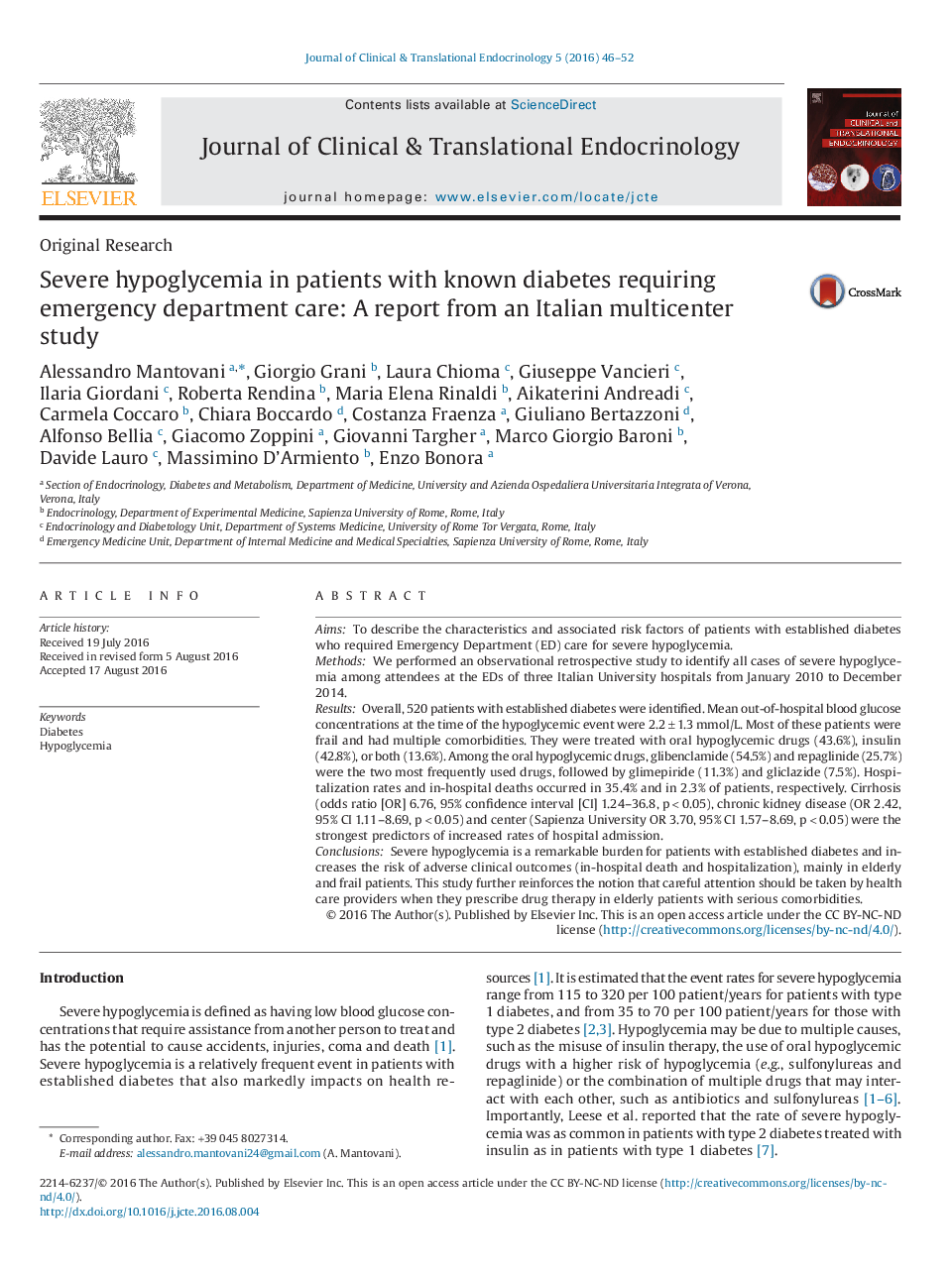| Article ID | Journal | Published Year | Pages | File Type |
|---|---|---|---|---|
| 2803986 | Journal of Clinical & Translational Endocrinology | 2016 | 7 Pages |
•Patients were frail and had a high prevalence of serious comorbidities.•Insulin treatment was the most important cause of severe hypoglycemia.•Among oral drugs, glibenclamide and repaglinide were the main used.•The rate of all-cause mortality was similar with that reported in other studies.•Liver and kidney diseases were the main predictors of hospitalization.
AimsTo describe the characteristics and associated risk factors of patients with established diabetes who required Emergency Department (ED) care for severe hypoglycemia.MethodsWe performed an observational retrospective study to identify all cases of severe hypoglycemia among attendees at the EDs of three Italian University hospitals from January 2010 to December 2014.ResultsOverall, 520 patients with established diabetes were identified. Mean out-of-hospital blood glucose concentrations at the time of the hypoglycemic event were 2.2 ± 1.3 mmol/L. Most of these patients were frail and had multiple comorbidities. They were treated with oral hypoglycemic drugs (43.6%), insulin (42.8%), or both (13.6%). Among the oral hypoglycemic drugs, glibenclamide (54.5%) and repaglinide (25.7%) were the two most frequently used drugs, followed by glimepiride (11.3%) and gliclazide (7.5%). Hospitalization rates and in-hospital deaths occurred in 35.4% and in 2.3% of patients, respectively. Cirrhosis (odds ratio [OR] 6.76, 95% confidence interval [CI] 1.24–36.8, p < 0.05), chronic kidney disease (OR 2.42, 95% CI 1.11–8.69, p < 0.05) and center (Sapienza University OR 3.70, 95% CI 1.57–8.69, p < 0.05) were the strongest predictors of increased rates of hospital admission.ConclusionsSevere hypoglycemia is a remarkable burden for patients with established diabetes and increases the risk of adverse clinical outcomes (in-hospital death and hospitalization), mainly in elderly and frail patients. This study further reinforces the notion that careful attention should be taken by health care providers when they prescribe drug therapy in elderly patients with serious comorbidities.
